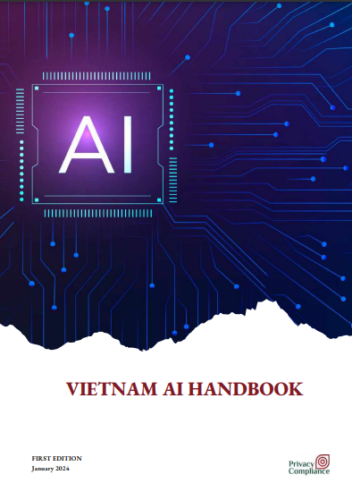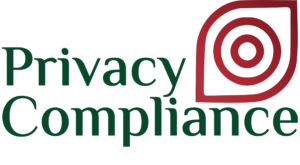The First AI Handbook in Vietnam
Dear Colleagues, Partners, and Friends,
Mindful of the significant advancements in artificial intelligence (AI) in recent times, Privacy Compliance has undertaken a project aimed at updating our clientele, partners, and the general public on the prevailing state of AI globally and, more specifically, in Vietnam. With great pride, we hereby introduce the inaugural edition of the Vietnam AI Handbook, diligently prepared by Privacy Compliance.
Commencing with a comprehensive overview of AI, accompanied by illustrative examples of presently prominent AI technologies, the Handbook subsequently delves into the applications and challenges posed by AI in the contemporary world. The latter portion meticulously compiles diverse legal regulations governing AI on a global scale, complemented by notable legal case studies. Concluding this endeavor, the Handbook scrutinizes the existing state and challenges within the AI sector in Vietnam, offering insightful recommendations for the future.
We are confident that our publication will afford readers a thorough understanding of the current landscape of AI both globally and within Vietnam. Should you be inclined, we sincerely hope you will allocate some time to peruse the Vietnam AI Handbook.

Download here: Vietnam AI Handbook_PrivacyCompliance_1st Edition
Best regards,
Privacy Compliance
#AIHandbook #AI #Vietnam #PrivacyCompliance #VietnamAIHandbook #DataProtection

𝗜𝗻𝘁𝗿𝗼𝗱𝘂𝗰𝗶𝗻𝗴 𝘁𝗵𝗲 “𝗕𝗶𝗼𝗺𝗲𝘁𝗿𝗶𝗰 𝗗𝗮𝘁𝗮 𝗶𝗻 𝗩𝗶𝗲𝘁𝗻𝗮𝗺” 𝗛𝗮𝗻𝗱𝗯𝗼𝗼𝗸 𝗯𝘆 𝗣𝗥𝗜𝗩𝗔𝗖𝗬𝗖𝗢𝗠𝗣𝗟𝗜𝗔𝗡𝗖𝗘
🚀 𝗜𝗻𝘁𝗿𝗼𝗱𝘂𝗰𝗶𝗻𝗴 𝘁𝗵𝗲 “𝗕𝗶𝗼𝗺𝗲𝘁𝗿𝗶𝗰 𝗗𝗮𝘁𝗮 𝗶𝗻 𝗩𝗶𝗲𝘁𝗻𝗮𝗺” 𝗛𝗮𝗻𝗱𝗯𝗼𝗼𝗸 𝗯𝘆 𝗣𝗥𝗜𝗩𝗔𝗖𝗬𝗖𝗢𝗠𝗣𝗟𝗜𝗔𝗡𝗖𝗘 Biometric data is rapidly becoming the backbone of identity verification, authentication, and monitoring systems – and is now classified as one of the most sensitive categories of personal data under Vietnam’s Personal Data Protection Law 2025. To help organizations, businesses, and privacy professionals navigate this […]
Learn more

VIETNAM’S LEGAL FRAMEWORK FOR BACKGROUND CHECKS
𝗕𝗔𝗖𝗞𝗚𝗥𝗢𝗨𝗡𝗗 𝗩𝗘𝗥𝗜𝗙𝗜𝗖𝗔𝗧𝗜𝗢𝗡 (𝗕𝗚𝗩) 𝗜𝗡 𝗩𝗜𝗘𝗧𝗡𝗔𝗠: 𝗪𝗛𝗔𝗧 𝗘𝗠𝗣𝗟𝗢𝗬𝗘𝗥𝗦 𝗡𝗘𝗘𝗗 𝗧𝗢 𝗞𝗡𝗢𝗪 As Vietnam moves toward full enforcement of the Personal Data Protection Law in 2026, background verification (BGV) practices are coming under closer legal and ethical scrutiny.Our latest article breaks down what checks employers can legitimately perform, when they are required by law, and how […]
Learn more

HIPAA PRIVACY RULE: MECHANISMS FOR PERSONAL HEALTH INFORMATION PROTECTION
HIPAA PRIVACY RULE: MECHANISMS FOR PERSONAL HEALTH INFORMATION PROTECTION The Privacy Rule is one of the core rules of HIPAA which governs the conditions, timing, and circumstances under which protected health information (PHI) may be used or disclosed. It establishes standards that grant patients rights over their health data, enhancing their control over its use […]
Learn more